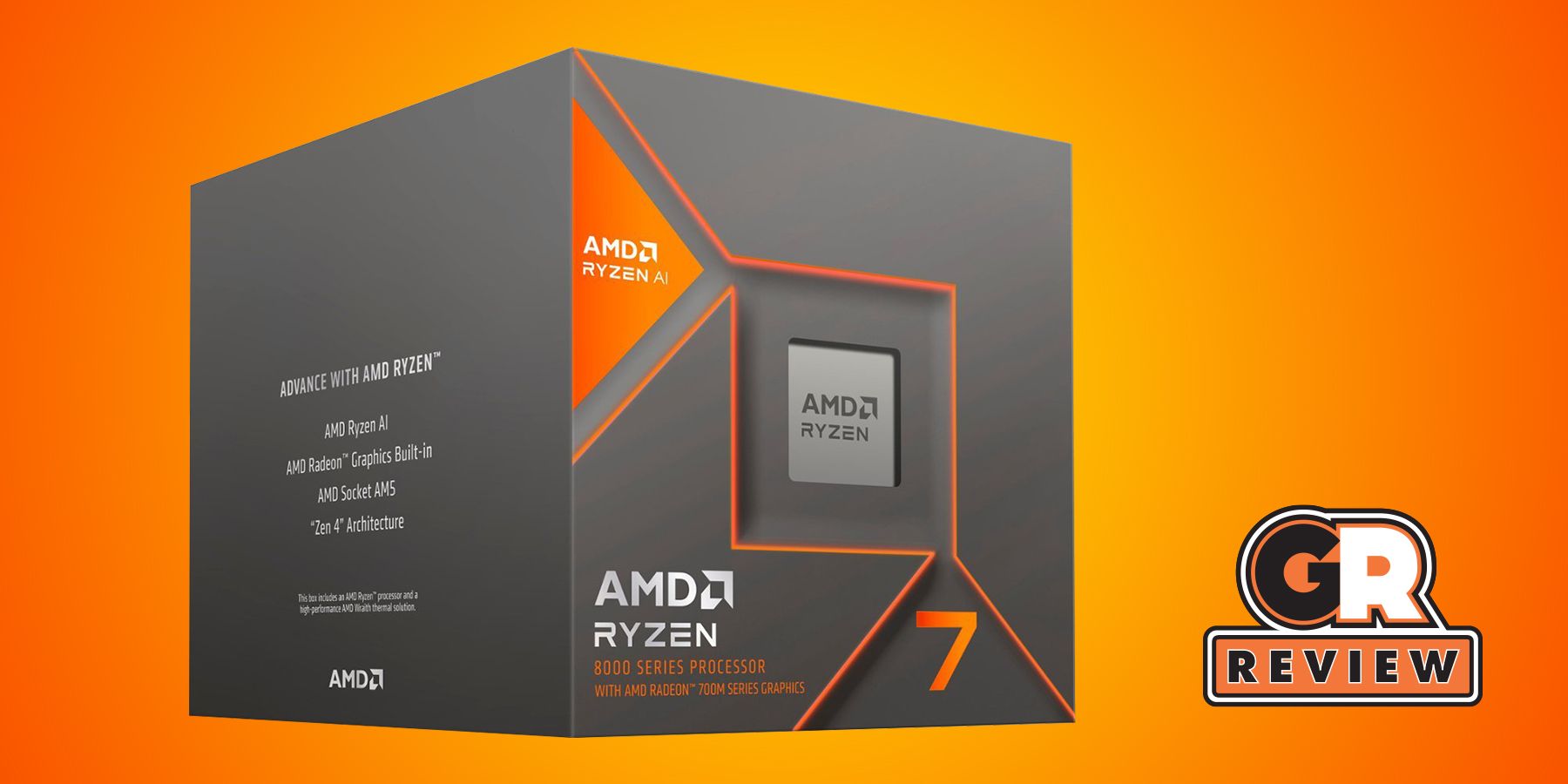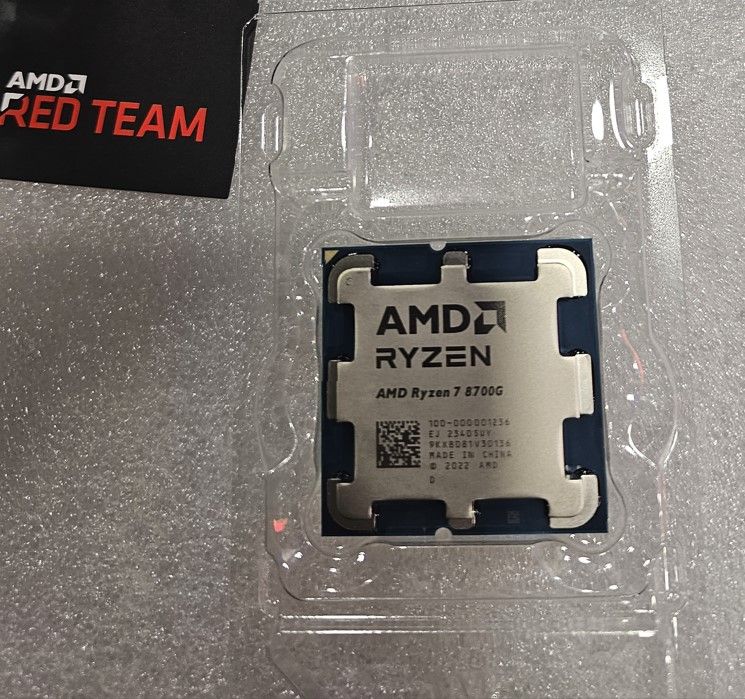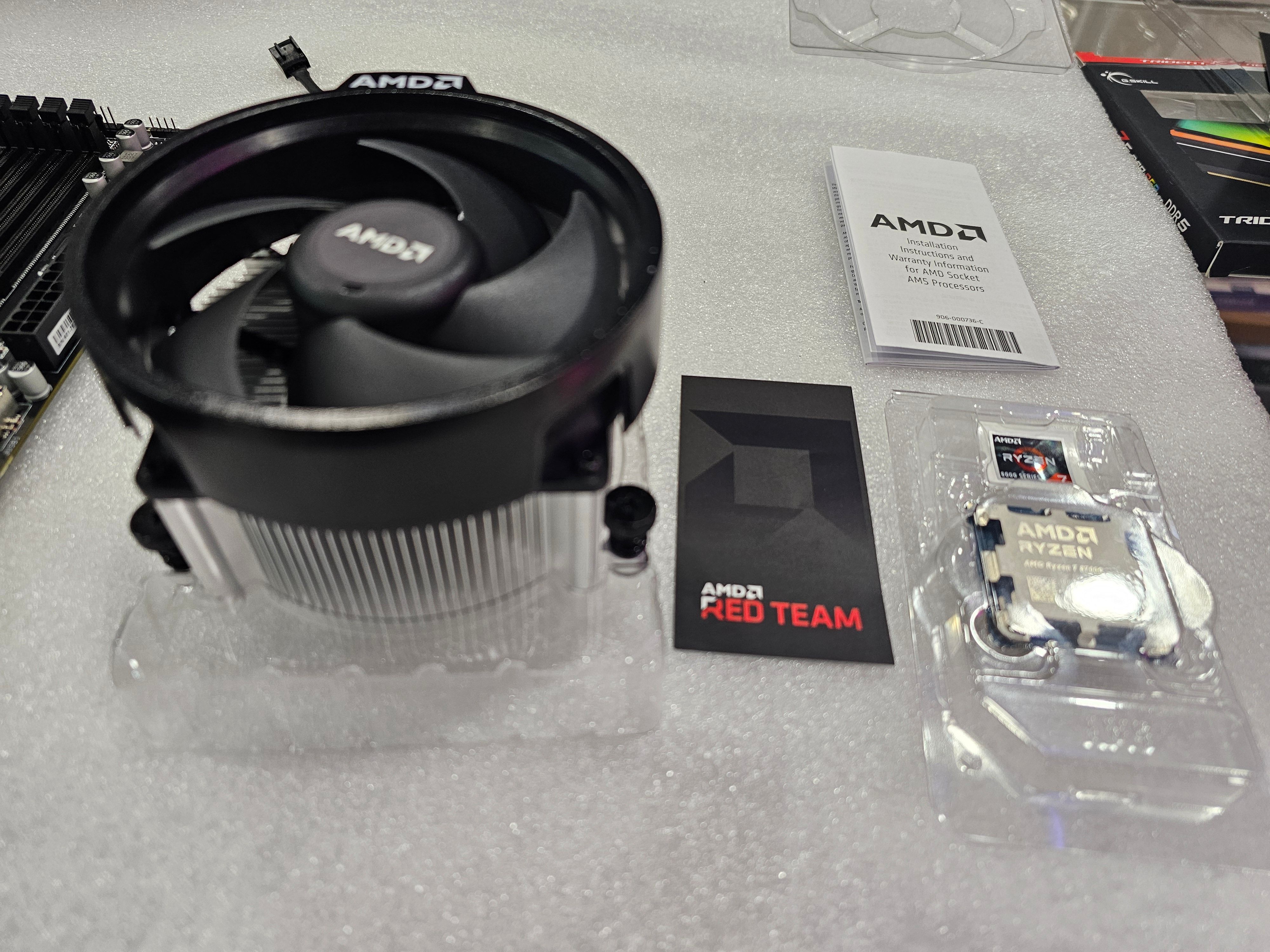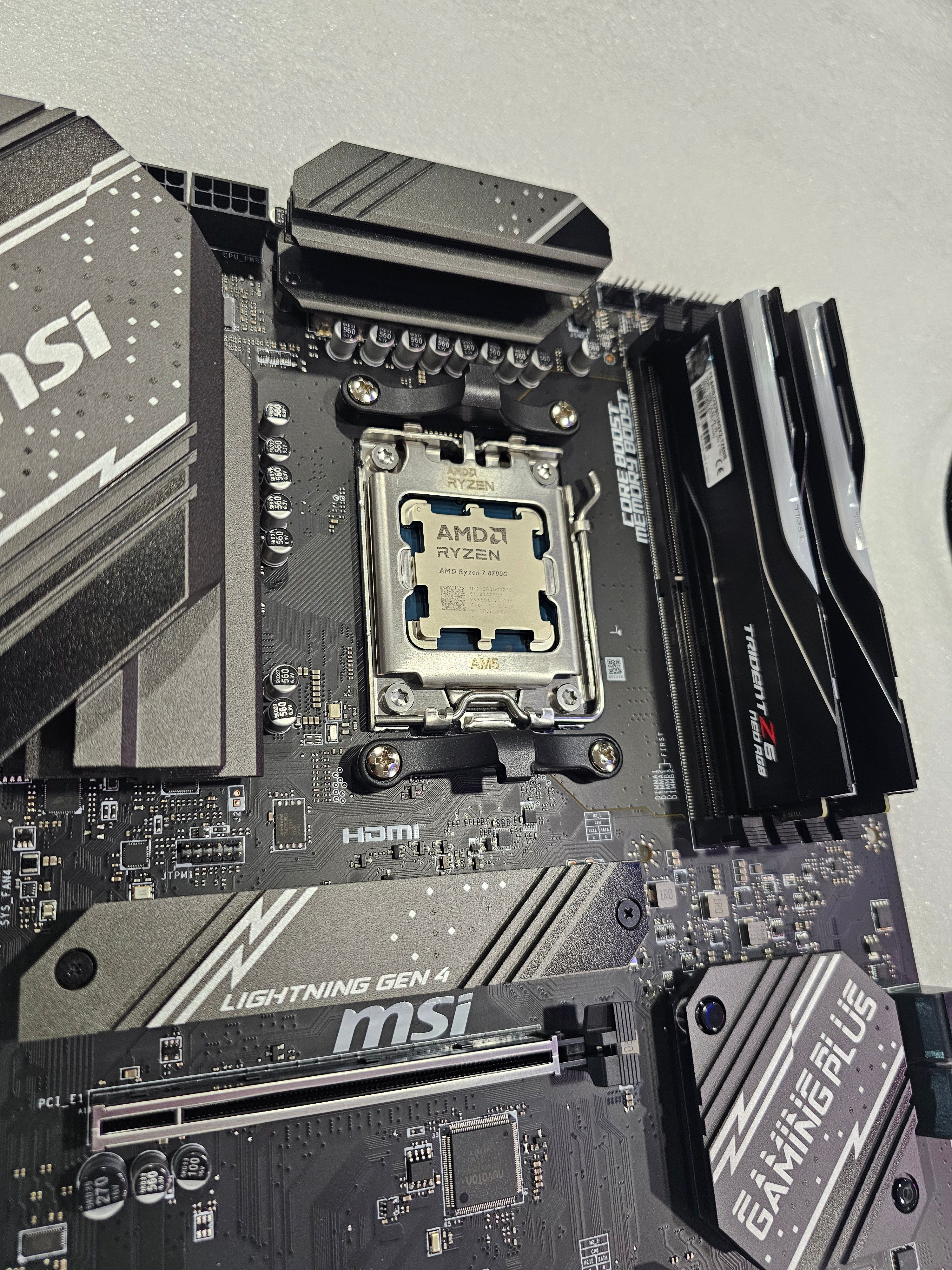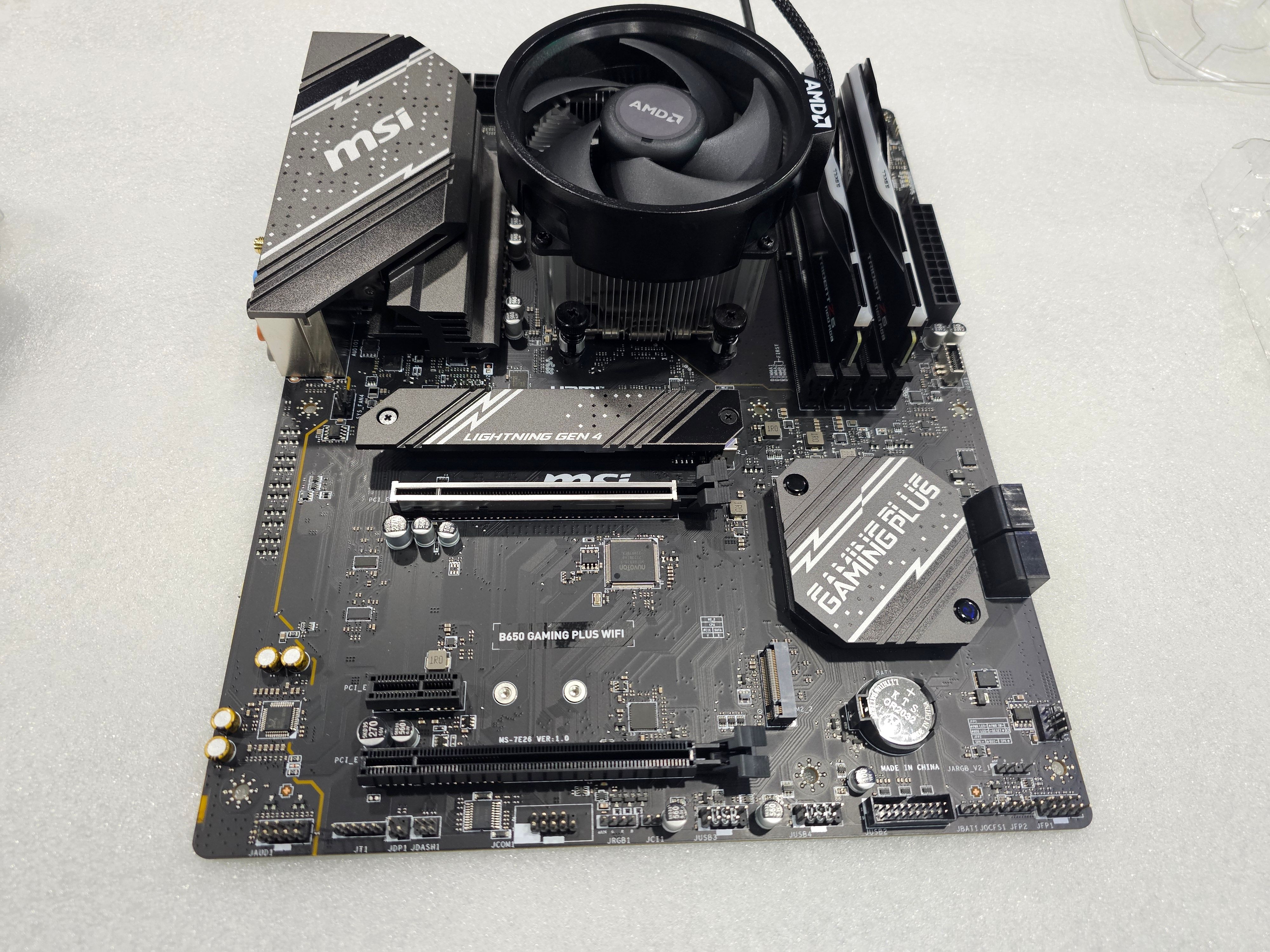Highlights
- AMD has launched several APUs, including the Ryzen 7 8700G, which combines a powerful mobile GPU with Phoenix Zen 4 cores, targeting both last-gen APU users and budget PC gamers.
- The Ryzen 7 8700G comes bundled with a stock cooler, the Wraith Spire, which can handle its power draw and provides cost savings for users.
- The Ryzen 7 8700G offers competitive gaming performance, with a powerful iGPU and decent multi-core performance, making it a viable alternative to discrete GPU options for FHD gaming.
AMD's APU offerings are back in focus as it launched both the AMD Ryzen 7 8700G and lower-end Ryzen 5 8600G on the 31st of January 2024 along with 2 smaller 8000 'G' series APUs, all of which work with newer socket AM5-based chipsets with DDR5 support in tow. All of these are manufactured on the newer 4nm TSMC FinFet process versus the 5nm process that the Zen 4-based Ryzen 7000 series desktop-class CPUs currently use.
These utilize the limited on-die space to squeeze in both a powerful mobile GPU and the Pheonix Zen 4 cores (albeit with smaller L3 caches) which deliver excellent power efficiency and target both, AMD's last-gen 5000G and older 3000G APU users and users looking for a budget-centric upgrade to their entry-level or mid-range gaming PCs with a core focus on being able to get a decent frame rate in esports titles as well as newer AAA games in 2024.
Contents of The Package
AMD's Ryzen 8700G comes in a larger box than most of its other 8000 'G' series counterparts as its package houses the larger Wraith Spire cooler that can handle larger CPUs with a TDP of up to 95W. It is bundled by AMD with mid-range CPUs such as the last-generation octa-core Ryzen 7 5700 which also matches the 8700G's TDP rating of 65W.
The package includes:
- The AMD Ryzen 7 8700G CPU
- The AMD Wraith Spire CPU Cooler
- A Ryzen 7 8000 Series Badge
- Bundled CPU Documentation
It is important to note that, unlike most of the unlocked Ryzen 7000 series CPUs that do not have a stock cooler, the 8700G comes bundled with AMD's trusty mid-range SKU that can handle its rated TDP.
Why Does The Bundled Wraith Spire Cooler Matter?
Tests do indicate that the 8700G can push well past 100W of power draw (when allowed to push past its power limits) when both its octa-core CPU config and the 2900MHz clocked 12-C Radeon 780M GPU are maxed out. This, however, is not a normal workload one expects to have when gaming where 65W is more than adequate for an APU that prides itself on its efficiency and performance-per-watt metric.
While other locked Intel CPUs also offer a stock cooler, none of its unlocked models do so. The AMD Ryzen 8700G leverages a considerably better stock cooler, upping the ante on its competition even as it saves users money that they would otherwise be spending on a comparable CPU cooler to handle the 65W TDP that the 8700G is rated at.

The Best CPU Coolers in 2024
Modern CPUs often require powerful and sustained cooling to maximize their overclocked performance. Here are some of Game ZXC's best picks!
What Does The AMD Ryzen 7 8700G Bring To The Table?
The 8-core, 16-thread AMD Ryzen 7 8700G is not AMD's first foray into the APU market and, given its pricing and positioning in a market reeling from ever-increasing GPU prices in the wake of an AI-induced boom cycle, a lot of consumers have seen themselves priced out of the market as a result. The Ryzen 7 8700G is not one of the fastest gaming-grade Zen 4-based CPUs thanks to its relatively timid CPU boost clocks and smaller L3 cache (16MB) in play.
To compare, the mid-range 8-core, 16-thread AMD Ryzen 7 7700X offers faster boost clocks (5.4 GHz vs 5.1 GHz), double the L3 cache (32MB vs 16MB), and a default TDP of 105W even as it uses a much weaker iGPU with a compute unit count of 2 and a maximum clock of 2200MHz versus the 2900 MHz the 12-CU 780M brings to the table for the Ryzen 7 8700G.
It, however, is the fastest consumer-grade APU to date, with its competition lagging significantly behind AMD in what is an increasingly crucial market to cater to as gamers continue to get sidelined thanks to rising semiconductor costs as well as inflation hitting PC gamers with higher costs across the board in terms of hardware, accessories and in some cases, even game titles.
It packs a significant punch compared to most integrated GPUs from both the Red and the Blue teams thanks to its 12-CU Radeon 780M offering that can clock up to 2900MHz with ease even on the stock cooler without breaking a sweat. The Zen 4 performance uplift allows it to offer a nearly 30% performance uplift compared to the previous generation APUs in single-core gains thanks to Zen 4's higher IPC count and the higher boost speeds it offers compared to the last-generation 5000G series APUs.
This, combined with TSMC's newer 4nm FinFet process and AMD's software push for better performance thanks to its HYPR-RX optimizations that build around FSR support for new and existing game titles in addition to AMD's already existing tweaks do allow for most gamers to easily break into playable frame rates at FHD resolutions with ease.
Some of the titles with tweaked settings that are currently in play as part of AMD's HYPR-RX offerings

The Best Gaming CPUs in 2024
The best CPUs for gaming have to stand out in an increasingly competitive space. These are the best you can buy right now.
Gaming Performance: How Does The Ryzen 7 8700G Fare?
Testing the Ryzen 7 8700G involved using it with its stock cooler along with an MSI B650 Plus Gaming Wi-Fi motherboard and low latency 6400 MHz DDR5 NEO RAM modules in dual channel configuration. The rule of thumb was to ensure no performance bottlenecks where possible while keeping things as close to stock as necessary. To this end, a fast PCI-E 4.0 SSD (Samsung 980 Pro) and an above-spec PSU (Antec HCG 1000W) were used along with an ethernet connection when testing online play in titles such as DotA 2, CS: GO 2 and Palworld.
Note: Testing was done on the latest version of Windows 11 using AMD's Adrenalin 24.1.1 drivers and retail post-release AMD chipset drivers and an up-to-date BIOS on the B650 Plus Gaming (with AGESA ComboPI 1.1.0.2b microcode) with retesting used to check the 8700G with AMD's STAPM fixes in tow. AMD provided a review unit of the Ryzen 7 8700G but had no input during Game ZXC's testing of the processor.
The AMD Ryzen 7 8700G uses the same AM5 socket as the Ryzen 7000 series CPUs, allowing it to run on existing AMD's current-generation motherboards without a hitch.
The AMD Ryzen 7 8700G performs well in a plethora of games, holding to AMD's aims of positioning it as both a significant upgrade to the 5700G as well as a viable alternative to AMD's lower-end or mid-range CPUs for users who aren't willing or able to spend on a discrete GPU solution just yet for FHD gaming.
Game Title | Average FPS | Preset |
CyberPunk 2077 | 49 FPS | Low (No FSR) |
DotA 2 | 164 FPS | Low/Fastest Preset, No FPS Cap, Vulkan Libraries |
Palworld | 54 FPS | Low w/High Textures (Defaults to medium on most options at low preset) |
GTA V | 106 FPS | High Textures, Default Preset |
It is important to note that AMD's FSR preset and dynamic resolution scaling or AI sharpening were disabled where available in the titles above but do deliver a nice boost where available. Palworld does not have FSR support and is also an early-access survival title, making it a somewhat debatable choice to benchmark, especially considering performance is sure to dip as one gets more Pals and structures in play compared to the more early-game scenarios it was tested against. The idea is to see if the Ryzen 7 8700G does a passable frame rate on the title, and we believe it does deliver on that front.
The AMD Ryzen 7 8700G does deliver playable frame rates in most titles with relative ease and our findings seem to pit it as a viable alternative to faster discrete GPUs that can be found at a sub-$150 price tag. During gaming benchmarks and stress tests available on both GPU-Z and CPU-Z, it drew a peak of 87W while pushing temperatures to 84 degrees on the stock cooler. This is not an issue since we do not expect most users to be approaching these temperatures on the stock cooler in a similar scenario.
It is important to note that the GPU does clock downwards, possibly to keep the power draw in check when all 8 cores of the CPU are engaged 100%, something that means fiddling with the 8700G's power limit should help matters.
Getting more out of the AMD Ryzen 7 8700G APU
Users might benefit from using AMD's PBO offering, preferably with a beefier cooler than the stock unit, if they plan to overclock the CPU (and the GPU) which comes unlocked out of the box. The iGPU also scales considerably well with higher memory clocks compared to other discrete options even at higher latencies, making it worth considering making the jump to 7200 MHz or even higher-clocked RAM, preferably with an EXPO profile to match.
One would want to adjust the power limits on the 8700G along with making sure they are on the latest BIOS update possible (to avoid throttling in-game due to STAPM issues) and use higher clocked, and preferably low latency RAM modules to eke out more from the 8700G than it already delivers at stock settings. At the same time, using AMD's newer HYPR-RX presets does deliver higher frame rates by making it a 1-click-optimize solution for gamers not willing to go over every game setting on a case-by-case basis.
AMD Ryzen 7 8700G Verdict: Redefining APU Performance Tiers
The Ryzen 7 8700G represents a win for AMD on its APU push as it delivers a competitive product to gamers not looking to spend more, offering a decent octa-core solution that uses Zen 4 cores to deliver performance that is as close as ever to a discrete GPU. It enables FHD gaming for most users willing to cut down on certain settings where possible. It is nimble, has a better iGPU than any other CPU on the market, and has decent multi-core performance despite the lowered boost clocks and halved L3 cache in play.
As it is, it targets gamers looking to delay their GPU upgrade down the line or use the longevity of the AM5 socket for a better upgrade down the line. It does, however, have caveats: No PCI-E 5.0 support is the primary one of them, along with only 8 lanes of PCI-E 4.0 available to any discrete GPU upgrades down the line. Price is another factor users can argue that they could upgrade to a beefier GPU and a much lower-end CPU for the same $329 price tag AMD asks for its APU.
The Ryzen 7 8700G's Value Proposition
Pictured: The AMD Ryzen 7 8700G is installed with its stock cooler on an MSI motherboard.
The 8700G allows users to leverage DDR5 RAM upgrades in 2024 without breaking the bank on an entry-level CPU and GPU upgrade. It also provides acceptable gaming performance and a decent CPU offering at its core, one that is hard to match. The Ryzen 7 8700G is a viable option that replaces most entry-level gaming PCs' CPU and GPU combo with ease but also finds itself catering to a very different kind of user base: SFF and HTPC builders.
SFF PC builders would prefer not having to deal with a discrete GPU option with the stock cooler being an easy fit compared to other aftermarket coolers in smaller cases. At the same time, the higher efficiency in play for an APU that stays below 90W in power consumption allows for a more cost-effective PSU choice, especially when not considering a discrete GPU option. Likewise, HTPC users might find the 8700G more powerful than what they require, but an option that can scale well with all their future needs with relative ease.
For users not looking to upgrade soon, the 8700G is a simple, viable option that delivers excellent performance and value for money in the now, even if one must sacrifice some upgradability to get it going.
The complete AMD Ryzen 8000G CPU lineup can be found in the table below:
APU Model | MSRP |
AMD Ryzen 3 8300G | TBD |
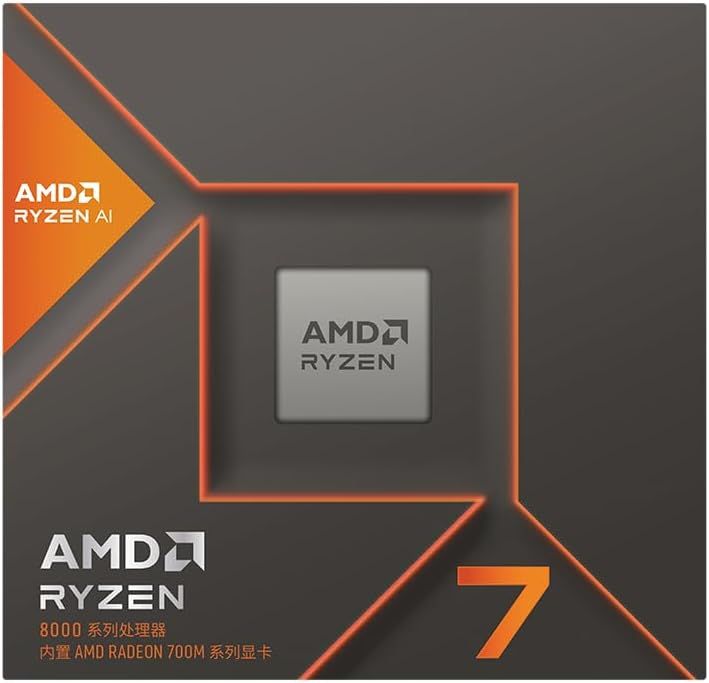
AMD Ryzen 7 8700G 8-Core, 16-Thread CPU
The AMD Ryzen 7 8700G 8-Core, 16-Thread CPU is the most powerful APU money can buy in 2024. It delivers modest gaming performance for PCs that do not currently utilize a discrete GPU while bringing Zen 4 core efficiency and performance gains in tow.

Best AMD Motherboards For Gaming In 2024
Here are our picks for the best AMD AM5-based motherboards for gaming that players can buy right now!

